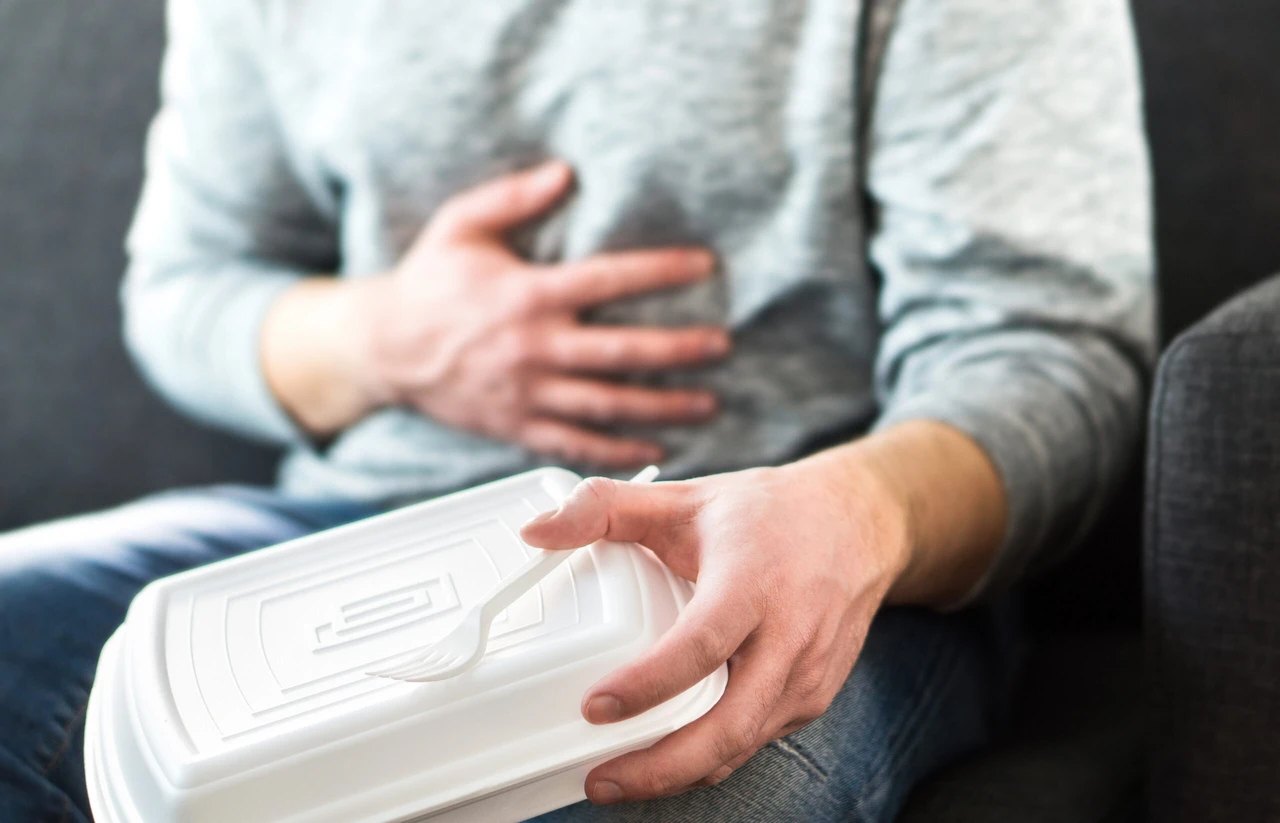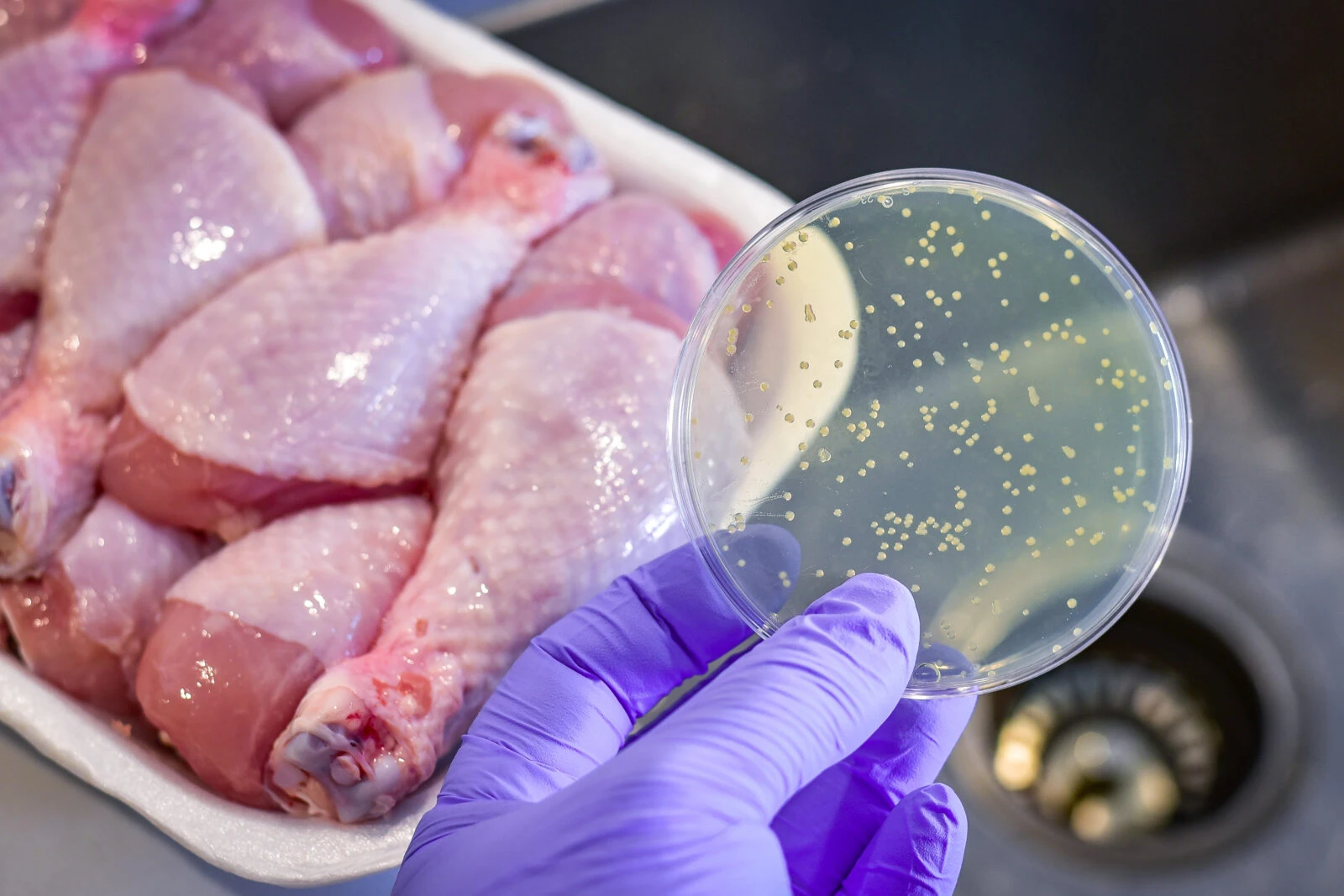Mass poisonings spark debate over food safety standards in Türkiye, experts warn
 Man with food poisoning after eating fast food. (Adobe Stock Photo)
Man with food poisoning after eating fast food. (Adobe Stock Photo)
At least 648 people have been hospitalised in the Korfez district of Kocaeli after reportedly consuming contaminated chicken doner. While most victims were treated and discharged, two remain in critical condition, raising serious concerns over food safety standards in fast-food establishments across Türkiye.
Meanwhile, in Konya’s Sarayonu district, nearly 400 people sought emergency care with complaints of nausea, vomiting, and diarrhea. Although initial suspicions pointed to contaminated drinking water, lab tests confirmed the water supply was safe. The true cause remains undetermined, but food consumed during recent holiday celebrations is under scrutiny.
These are not isolated incidents. In January, 60-year-old Servet Polat died after eating contaminated stuffed potatoes, and several years ago, 700 soldiers in Manisa were hospitalized after eating tainted chicken.
Is falling ill from food now a common risk in Türkiye?
The alarming frequency of food poisoning cases in Türkiye begs the question: Where are the authorities going wrong?
According to the World Health Organization (WHO), over 94 million cases of Salmonella infections occur globally every year, resulting in 155,000 deaths. A staggering 85% of these are linked to contaminated food. In Türkiye, experts say Salmonella remains the most common bacterial culprit behind foodborne illnesses.
Invisible danger on your plate
According to Hurriyet, food engineer Nurten Sirma warns that salmonella naturally exists in the intestines of both humans and animals, spreading primarily through feces. She identifies poultry, particularly raw chicken and turkey, as high-risk carriers. Improperly cooked meat, unpasteurized milk, unwashed vegetables, or even direct contact with animals like chicks or birds can transmit the bacteria.
“Foodborne illnesses are not something you can detect by smell or sight,” she explained. “In fact, many businesses employ deceptive practices to disguise spoiled food. This is not just carelessness—it’s a serious breach of responsibility.”

Dangerous tricks to cut costs in kitchen
Sirma says that some businesses cut corners to reduce costs even further, even though chicken doner is already among the cheapest fast foods available to Türkiye’s working-class population.
“Some producers mix in poultry by-products like connective tissue, mechanically separated meat, and skin to bulk up the doner. Poultry skin, in particular, is one of the riskiest parts when it comes to Salmonella contamination,” she notes.
Adding to the concern is the use of expired or untraceable products—often referred to as “scrap” or “underground” food. Combined with high employee turnover in the food sector, Sirma says the industry suffers from a lack of consistency in maintaining hygiene standards.
‘This is attempted murder,’ says food hygiene professor
Professor Mustafa Tayar, a food safety expert at Uludag University, issued a stark warning: “If proper food handling isn’t followed, it’s not just negligence—it’s attempted murder.”
Referring to a recent video allegedly filmed at the Kocaeli doner shop, Tayar said: “The cook was seen adding raw chicken to a half-cooked doner spit to keep up with demand. In my view, that’s equivalent to intentionally endangering lives.”
Tayar also criticized the lack of food literacy in the country. “Unless consumers are educated about what they eat, no number of inspections will prevent this. The food chain is only as strong as its weakest link,” he said.
Avoid these common food safety mistakes
Experts list basic but essential food safety rules that must not be ignored:
- Raw chicken or its juices must never touch other foods.
- Knives used for raw meat should not be reused without proper cleaning.
- Chopping boards should not be shared between raw meat and other ingredients.
- Frozen poultry should be thawed in a refrigerator, not at room temperature or in boiling water.
- Chicken should not be washed before cooking, as this spreads bacteria.
Even though food safety certifications are mandatory in Türkiye, experts say many businesses treat them as formalities. “Certificates are displayed on walls, but daily practices often ignore basic hygiene,” said Professor Tayar.
“The real problem lies in the mindset—chasing profits at the cost of human health.” He called for tougher inspections, more visible enforcement, and better public awareness.



